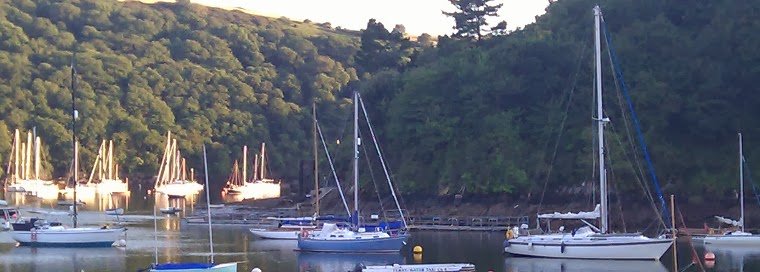NMEA Press Release
A Panbo article a few days ago announced a statement on the NMEA's website "recognizing" Signal K. The text is as follows:NMEA Recognition of Signal K Open Source Project NMEA recognizes the Signal K Open Source project as it serves the need and creates a method that allows both large and small mobile app developers to get involved with NMEA networking. NMEA will recognize this through the means of a NMEA 2000 certified gateway as it does for all other protocols. Signal K developers will need to use a NMEA 2000 certified and fire-walled gateway for the physical interface- either stand-alone or built within a display. This protects the NMEA Intellectual Property and the investments of years of development by many manufacturers worldwide. This method allows the NMEA Intellectual Property to be locked by the gateway as stated in the NMEA 2000 License Agreement. Only this style gateway can perform the translation from NMEA 2000 to Signal K. The gateway requirements are defined in NMEA 2000 Appendix H "3RD Party Gateway Requirements”. This potential new gateway is treated by NMEA no differently than any other certified gateway on the market, such as a NMEA 2000 to J1939 as an example. If NMEA members wish to get involved in Signal K, more information is available at http://signalk.org
Supporters of Signal K including Bill Bishop are very excited about this "recognition" but what is actually being said here? There has never been a barrier to commercial organisations buying the NMEA 2000 specification and producing an NMEA-to-SignalK (or any other data format) gateway and stumping up the cash to get it certified. The NMEA don't seem to be doing anything new to facilitate production of such a gateway. If anything, this statement appears to be a warning against producing "uncertified" bridges. A memo on the NMEA's web site to the Signal K team clarifies this somewhat. Following discussions with the Signal K team they had agreed to make the web site statement but
not do a press release or a member mailing regarding Signal K as previously discussed. NMEA will not use the words “Support”, “Endorse”, or “Partner With” in this web announcement.The NMEA will be providing the core Signal K developers with a platform at METS to discuss Signal K with NMEA members.
What does it all mean? Given the NMEA's reputed affinity for the legal profession, although this web posting doesn't actually say anything it might be as close to the "endorsement" they say it definitely isn't as we might hope to see. Both Actisense (reported in the Panbo article) and Digital Yacht (from conversations at the London Boat Show earlier this year) have been following the Signal K project with interest and tacit acceptance of it by the NMEA is hoped to be the trigger for more concrete product development from such companies.
For companies making gateways this presents the possibility of new products and hence revenue. For the NMEA this represents revenue from certification of new products and arguably protection of intellectual property as open source and small commercial developers will have an "official" alternative to reverse-engineered data formats.
For the average boater? Perhaps a hope would be stimulus to app development but development of boating applications doesn't seem to have been completely hindered to date by the legal grey area surrounding NMEA-0183-over-IP which is almost universally used. Commercial availability of NMEA-2000-to-SignalK gateways would doubtless encourage adoption of SignalK by developers but will consumers care if their data arrives on their iThing in a different format?
Probably not if it's the same data, but possibly if it's data that weren't previously available. NMEA-0183 has no standard representation for many types of data that may exist on an NMEA-2000 bus. NMEA 2000-to-0183 gateways don't tend to convert much of the engine management data, tank level data etc. available on an NMEA-2000 network. Signal K is not so constrained and a commercial NMEA-2000-to-SignalK gateway could pass all these data. More data availability opens the door to more applications.
More widespread adoption of Signal K may also promote development of apps which exploit novel features of it, such as the "social boating" aspect and sharing of data between craft. Is that a good thing which the punters will be queuing up for? Don't ask me: I'm so anti-social I don't even have a twitter account.
Although initially sceptical that the announcement really says nothing at all, I do concur that this "recognition" does indeed represent a significant advancement of the Signal K cause.
Since my previous post about Signal K last year have I concluded that it's the best thing since sliced bread? More in part two although I confess that I'm not all that keen on sliced bread.
